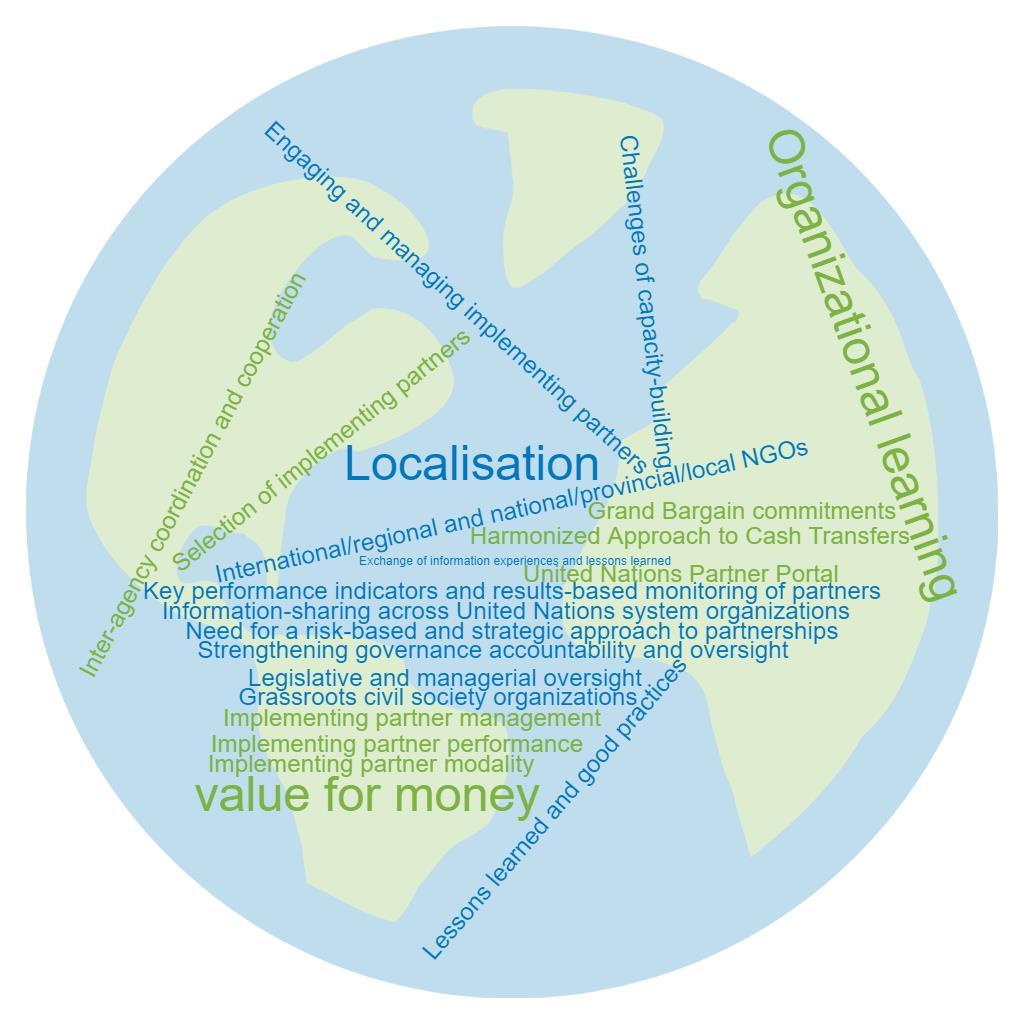- عربي
- 中文
- English
- Français
- Русский
- Español
Review of the management of implementing partners in United Nations system organizations (JIU/REP/2021/4)
Review of the management of implementing partners in United Nations system organizations (JIU/REP/2021/4)
The follow-up review of the management of implementing partners by organizations of the United Nations system assesses the progress achieved since the previous JIU report JIU/REP/2013/4. It takes appropriate account of the impact of COVID-19 as it relates directly to the engagement and management of implementing partners. Based on recent trends and developments, it looks ahead as to how the implementing partner modality and management could evolve in the coming years. It also draws up an illustrative list of good practices from United Nations entities.
The review found that, in order to further improve implementing partner management, most United Nations organizations need to, among others: ensure coherence in implementation of policies and procedures, which constitutes a challenge in view of the dispersed responsibilities for implementing partners within most entities; sustain a strategic and risk-based approach to implementing partner management, aligned to the entity’s strategic framework; and further strengthen managerial oversight and risk-based monitoring of partner performance in line with results-based methodology. The report suggests measures for strengthening governance, accountability and oversight related to implementing partner management. It identifies specific areas to strengthen due diligence checks of implementing partners and to address challenges concerning their selection and management. The report underscores the importance of promoting organizational learning and knowledge-sharing from the evaluations of implementing partner performance and management. It also explores ways of strengthening inter-agency cooperation and coordination in the management of implementing partners.
Progress has been considerable in strengthening and enhancing inter-agency coordination related to implementing partners, notably in the Harmonized Approach to Cash Transfers (HACT) and the United Nations Partner Portal (UNPP), which demonstrate impressive results of such efforts. However, more can be done to foster cooperation and information-sharing in regard to implementing partner management at the headquarters, regional and country levels. In this context, organizations would benefit from agreeing on a common system-wide definition and a set of guiding principles and standards for implementing partner management.
To address the various challenges and shortcomings identified, especially in the areas of selection, due diligence, risk management, capacity-building, performance monitoring, oversight, and enhancing inter-agency coordination, the report makes ten formal recommendations, two for action by the legislative organs and governing bodies, and eight by the executive heads, of the United Nations system organizations. These are complemented by 17 informal recommendations, outlining suggestions to the executive heads for effecting further improvements.
The review’s findings will be presented to the General Assembly at its 77th session, following the receipt of CEB’s comments on the report
For the Report, click here
For the Review Highlights, click here


